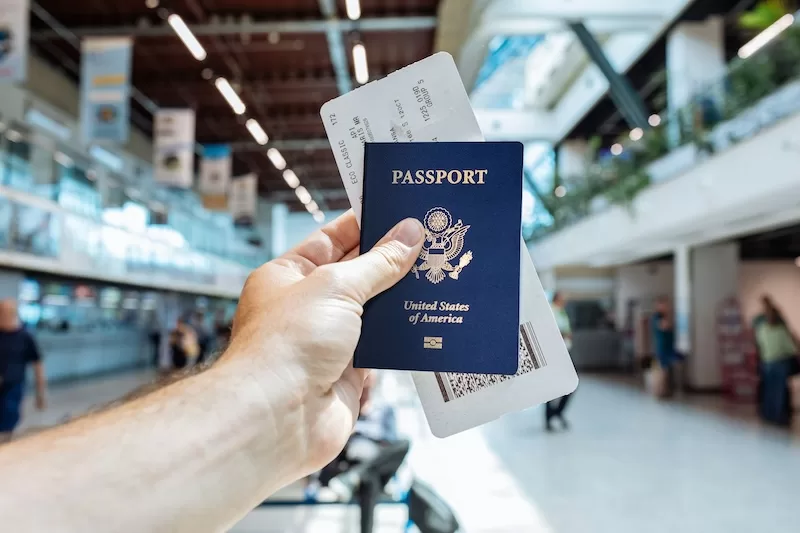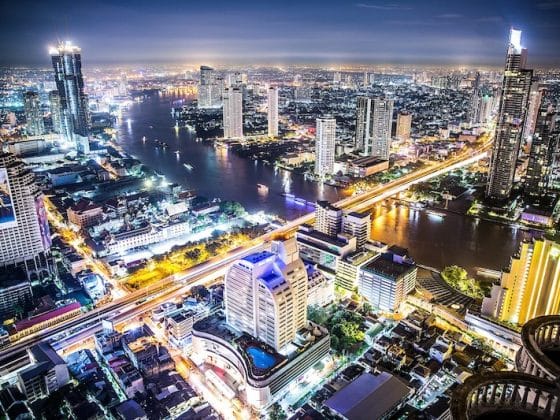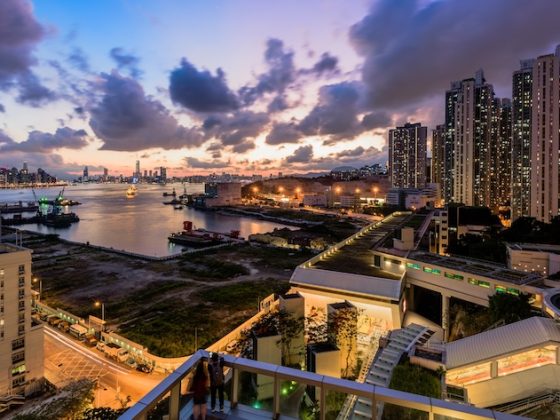Introduction
If you’ve ever wondered “what is an expat?”, you’re tapping into a concept that’s increasingly relevant in today’s globalized world. An “expat”(short for expatriate) is someone who lives outside their native country, often for work, study, or lifestyle reasons. But being an expat is more than just relocating. It involves adapting to new cultures, laws, and norms. It’s about reshaping your life in a new context.
This article delves into the full meaning behind the term, explores motivations and challenges, and guides you through the path to thriving abroad. You might dream of working in Tokyo, retiring in Portugal, or exploring remote work from Bali. Whatever the case, this guide will introduce you to the ins and outs of the expat life.
Origins and Etymology of the Term “Expat”
The word “expat” originates from the Latin prefix ex- (meaning “out of”) plus patria (meaning “native country”). Historically, the term had connotations of being banished or living in exile. But the meaning has evolved into something more aspirational: the freedom to live and work across borders. Today, “expat” describes professionals, retirees, digital nomads, and families who choose to make the world their home.
Expat vs. Immigrant: Similarities and Differences
Although “expat” and “immigrant” are sometimes used interchangeably in casual conversation, they have distinctions worth noting.
Legal status and visa issues
An immigrant typically moves permanently or for a very long term, often seeking citizenship or permanent residence. An expat (while sometimes staying years) often retains strong legal ties to their home country and may have a temporary or specific visa status.
Length of stay and intent
Expats often view their stay as time-limited or tied to a particular project, whereas immigrants usually anticipate settling more permanently. Someone might move abroad for a 5-year contract (expat) versus relocating indefinitely (immigrant).
How Many Expats Are There Worldwide?
Recent Statistics
Because most national-level statistics lump all international residents together, precise counts of expats (as a subset) are rare. However, we can draw from industry analyses and mobility surveys:
- A recent industry commentary cites that in 2022, the number of expatriates globally was about 75.2 million.
- The Henley & Partners group refers to an estimated range of 50 to 60 million expats globally in some recent commentary, as a conservative mid-point estimate.
Even at the lower end, that represents a population larger than Italy or South Africa, individuals who have deliberately chosen to live abroad for work, lifestyle, investment, or personal growth. These figures reveal just how mainstream expatriation has become, shifting from a niche corporate practice to a defining feature of modern, globally connected life.

Trends and Forecasts
The definition of an expat is evolving. The traditional corporate assignee has been joined by digital nomads, retirees, and remote freelancers who live abroad by choice rather than by necessity. The MBO Partners 2023 Digital Nomad Report estimates 17.3 million Americans now identify as digital nomads (more than double the number in 2019) and this pattern is visible worldwide.
In response, over 50 countries now offer digital nomad or remote worker visas, including Portugal, Spain, Costa Rica, Croatia, and Indonesia (Bali). The world is opening its doors in new ways. For many, “home” is no longer a single address: it’s a mindset built on freedom and flexibility.
Looking ahead, global mobility analysts forecast continuous growth in voluntary expatriation, driven by factors like remote work infrastructure, cost-of-living differences, and lifestyle freedom. In short, the rise of flexible work and lifestyle migration means ‘expat’ now describes not a privileged few but a growing global tribe redefining where and how we live.
Read More Like This: The Top Expat Destinations 20 Years From Now
Why People Choose the Expat Life
What motivates someone to ask what is an expat and then actually take the leap? The reasons are as varied as the destinations themselves, but most expat journeys begin with the same spark: a desire for change, growth, and possibility.
Economic Opportunity
For many, moving abroad is a strategic career move. Professionals often relocate to countries with stronger job markets, tax advantages, or booming industries that offer faster advancement than back home. Many surveys show a strong link between expatriation and career goals. For instance, HSBC reports that 64% of expats said their income increased by more than 10% after moving abroad. Think of a software engineer heading to Singapore for its tech ecosystem, or a teacher moving to the UAE for competitive salaries and benefits. For others, freelancing or remote work abroad allows them to earn in a strong currency while enjoying a lower cost of living, a lifestyle that blends ambition with financial wisdom.
Quality of Life and Adventure
Some expats trade the familiar for the promise of balance and beauty. They’re drawn by the rhythm of Mediterranean mornings, the slower pace of Latin American afternoons, or the chance to live somewhere their workday ends with a sunset swim instead of a commute. Lower rent, affordable healthcare, and safer communities add to the appeal. It’s not unusual to see Americans relocating to Portugal, Canadians heading to Mexico, or Europeans settling in Costa Rica, all searching for a blend of affordability and adventure that simply feels more human.

Personal Growth and Cultural Exposure
Living abroad reshapes how you see both the world and yourself. Every new language learned, tradition experienced, or friendship formed becomes a mirror reflecting your own adaptability. Culture shock, once daunting, turns into curiosity. Expats often describe this stage as one of deep personal reinvention: learning to navigate difference, to appreciate nuance, and to build a home in the unfamiliar. The result is a kind of growth no classroom or job title can replicate a worldview widened by experience and empathy.
Read More Like This: Where to Move Next: The Best Expatriate Countries in 2025
Common Challenges of Expat Living
No expat journey is without obstacles. Moving abroad means stepping outside every comfort zone you’ve built and learning to rebuild it somewhere unfamiliar. Understanding these challenges early helps you prepare mentally and practically.
Cultural adjustment and homesickness
The first few months abroad can feel disorienting. Everything from grocery shopping to social customs might unfold in ways that seem strange or unpredictable. Even experienced travelers encounter culture shock, especially after the initial excitement fades. It often shows up as fatigue, frustration, or an unexpected longing for home. Missing family milestones, favorite meals, or familiar sounds is completely normal. Over time, though, daily life begins to feel more natural. Many expats find comfort by blending the familiar with the new, hosting dinner nights with friends, joining local clubs, or keeping small rituals from home that anchor them in change.
Language Barriers
Language challenges are among the most humbling parts of life abroad. Tasks that once felt routine, like visiting a doctor or paying a bill, suddenly require extra patience and creativity. Even in countries where English is common, local slang and bureaucratic terms can test your adaptability. Learning the local language, even just the basics, can transform your experience. It shows respect, builds confidence, and opens doors that stay closed to those who never try. A simple “thank you” or “good morning” in the native tongue can shift an interaction from polite to genuinely warm.
Financial, Tax, and Healthcare Issues
Money, taxes, and healthcare form the practical backbone of expat life. Each country has its own systems and expectations, and navigating them takes time. For example, U.S. citizens living abroad are still required to file annual tax returns, although many qualify for the Foreign Earned Income Exclusion (FEIE). Setting up international banking, managing exchange rates, and securing reliable health coverage are just as important. Many expats choose global insurance plans that cover treatment both in their host country and back home. Think of these details as the scaffolding of your new life: invisible once built, but crucial to your stability.
Expat life will test your patience and adaptability, but it rewards you with confidence you didn’t know you had. What once felt complicated becomes routine, and in that process, you learn just how capable you really are.
Practical Steps to Become an Expat
Turning the idea of living abroad into reality takes more than booking a flight. It’s a process that blends logistics, patience, and a bit of self-discovery. Below is a step-by-step roadmap to help you move from curiosity to confident relocation.
Research and Planning
The first stage is about clarity. Before choosing a destination, compare cost of living, language, infrastructure, safety, and visa options. These factors vary widely, even within the same region. For instance, living in Lisbon is very different from living in rural Portugal; both offer charm, but each comes with distinct costs and rhythms.
Dive into expat forums, Facebook groups, and country-specific blogs to get an honest feel for everyday life. Government websites and embassy pages are essential for official data, but the most practical insights often come from those already living there. You’ll learn where people actually shop, how much utilities cost, and what neighborhoods feel safe and welcoming.
A good research tip: start with what you value most. If you crave stability, focus on countries with strong healthcare and infrastructure. If adventure calls louder, look at places with flexible visa policies or digital nomad programs. Treat this stage like dating: you’re finding the country that fits you, not just the one that looks good online.

Visa and Legal Compliance
Once you’ve narrowed your list, dig deep into visa requirements. Every country has its own categories: work visas, retirement visas, digital nomad visas, investor visas, or student permits. Read the fine print carefully. Some require proof of income, health insurance, or a background check. Others may have strict renewal processes or limits on part-time work.
Consider consulting a migration lawyer or relocation specialist, especially if you’re planning to buy property or stay long term. Their guidance can prevent costly mistakes with residency paperwork, taxes, or local permits. Keep a digital folder for every document (passport copies, visa forms, proof of funds, and health certificates) and back it up online. Bureaucracy is easier when you’re organized.
Financial Preparation and Healthcare
Money management can make or break your expat experience. Start by estimating your monthly expenses abroad (rent, transport, groceries, insurance) and add a safety margin of at least 20%. Multi-currency bank accounts or international payment apps like Wise or Revolut can help you transfer money with lower fees. Set aside an emergency fund of three to six months’ living expenses. Unexpected costs (like visa renewals, medical bills, or flight changes) happen more often than you think.
Healthcare deserves its own attention. Some countries have excellent public systems, while others rely heavily on private providers. International health insurance ensures continuity of care wherever you go, which is especially important for retirees or remote workers who travel frequently. Compare plans that cover both everyday care and medical evacuation.
Finally, understand your tax obligations in both your home and host country. For instance, U.S. citizens must still file annual returns even when living abroad. Check if your destination has a tax treaty with your home nation or offers foreign income exclusions to avoid double taxation. A cross-border accountant can help you plan efficiently.
Relocating abroad brings about a necessary mindset change. Each step you take brings you closer to a lifestyle that prizes freedom, adaptability, and discovery. Once your paperwork is sorted and your finances are secure, you’ll realize the hardest part wasn’t the move itself but the decision to say yes to a life lived differently.
Expat Communities, Networks & Support
One of the best ways to feel at home abroad is to connect with people who understand what you’re going through. Joining expat networks, local Facebook groups, or international meetups can make the difference between feeling like a visitor and feeling like you belong. These spaces become your first social lifeline, a place to ask practical questions, share stories, and swap insider tips you won’t find in a guidebook.
Most major cities have international clubs, language exchanges, and coworking spaces designed for expats and remote workers. They’re not just for networking; they’re where friendships form, jobs are found, and communities start to feel real. Many groups organize hiking trips, potluck dinners, or cultural workshops that help newcomers understand local traditions while meeting like-minded people.
If you’re moving with family, look into international schools, parent networks, and community centers. For solo professionals or digital nomads, spaces like Internations or MeetUp are valuable for finding others who share your pace of life.
Beyond social comfort, these communities offer practical support, from help navigating rental contracts to finding language tutors or trustworthy local doctors. They also serve as emotional anchors when the honeymoon phase fades and homesickness sets in. Staying connected with both locals and fellow expats gives you a balance of familiarity and growth, helping your new country start to feel like home.

Key Tips for Thriving as an Expat
Thriving abroad is more than luck: it’s mindset. A few smart habits can turn culture shock into confidence.
- Learn the language basics.
Even a handful of words can open doors. Start with greetings and everyday phrases, and keep learning through locals, apps, or language exchanges. - Stay open-minded.
What feels strange at first might become what you love most. Try local food, join community events, and let curiosity replace comparison. - Keep simple routines.
Regular workouts, journaling, or morning walks help ground you when everything else feels new. Familiar structure makes change easier to handle. - Save for surprises.
Hidden costs pop up: visa renewals, deposits, emergencies… Keep a few months’ expenses aside so you can adapt without stress. - Stay connected.
Homesickness fades when you stay in touch. Weekly calls, messages, or photo swaps with family and friends remind you that distance doesn’t erase belonging. - Mix circles.
Spend time with locals and other expats. Locals help you understand your new world; expats help you navigate it. - Learn the unspoken rules.
Every culture has invisible etiquette: how to greet, tip, or queue. Observing first, asking politely, and following local rhythms earns quick respect. - Give it time.
Adjustment doesn’t happen in a week. There will be ups and downs, but one day you’ll catch yourself calling your new city “home.”
Becoming an expat is like planting yourself in new soil: you bring your roots (skills, identity) but must adapt to new nutrients (culture, language) to thrive.
FAQs
Q1: Does an expat need a work permit?
Yes. Most countries require a valid work visa or permit to be employed legally. The rules vary by type of work and length of stay, so always check official immigration guidelines before accepting a job offer.
Q2: Can expats get citizenship in their host country?
Sometimes. Many countries allow long-term residents to apply for citizenship after several years, provided they meet residency, language, and integration requirements. Others only grant permanent residency without a path to full citizenship.
Q3: Do expats pay taxes in their home country?
It depends on your citizenship and where you live. Some countries tax based on residency, while others, like the United States, tax citizens no matter where they reside. Consult a tax professional who specializes in cross-border taxation.
Q4: Is being an expat lonely?
It can be at first. Moving away from your social circle is a big adjustment. Building connections through expat communities, coworking spaces, or language classes helps ease the transition and create a new support network.
Q5: How long do people stay as expats on average?
It varies widely. Many expats relocate for two to five years, especially on job contracts, while others settle indefinitely once they establish roots abroad.
Q6: What is the difference between an expat and a digital nomad?
An expat typically resides in one foreign country for an extended period, often with a work or residency visa. A digital nomad moves between countries more frequently while working remotely, often using short-term visas or digital nomad permits.
Q7: How can I prepare for culture shock?
Learn about your destination before arriving: its customs, values, and communication style. Expect an adjustment period, and give yourself time to adapt. Staying curious and open-minded helps transform culture shock into cultural learning.
Q8: What are the best ways to meet people abroad?
Join language exchanges, hobby clubs, or volunteer projects. Attend local events and use online platforms like Meetup or Internations. Making an effort to connect beyond the expat bubble helps you feel part of your new community.

Your Expat Journey Awaits – Take the Step
Defining what is an expat is just the beginning of a journey into global possibility. We’ve unlocked the meaning, uncovered the motivations and obstacles, and mapped out practical steps to make it real. Now it’s your turn: your dream might be working in Singapore, retiring in Costa Rica, or exploring digital nomad life in Southeast Asia. Whatever the case, the tools are in your hands. Subscribe to our newsletter for more deep-dives into country-specific guides. The world is waiting: take the leap and start writing your expat story today.
Contact Author
"*" indicates required fields
Stay Ahead on Every Adventure!
Stay updated with the World News on Escape Artist. Get all the travel news, international destinations, expat living, moving abroad, Lifestyle Tips, and digital nomad opportunities. Your next journey starts here—don’t miss a moment! Subscribe Now!










